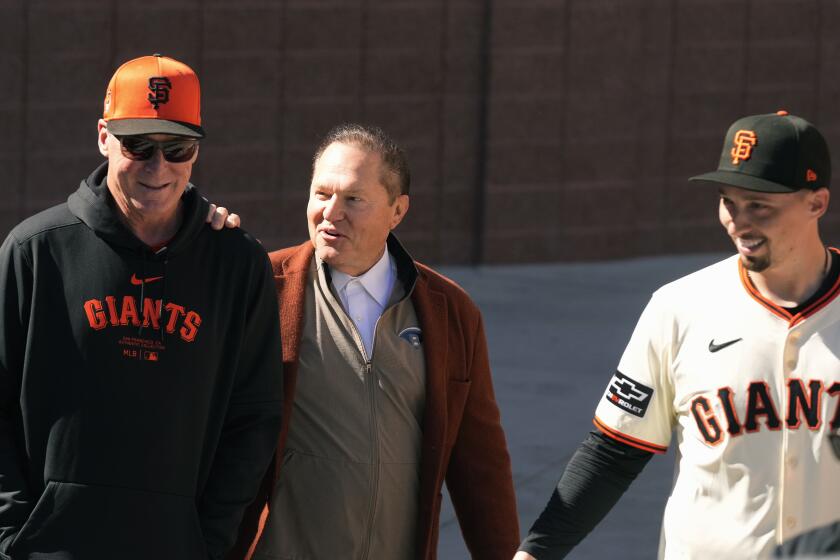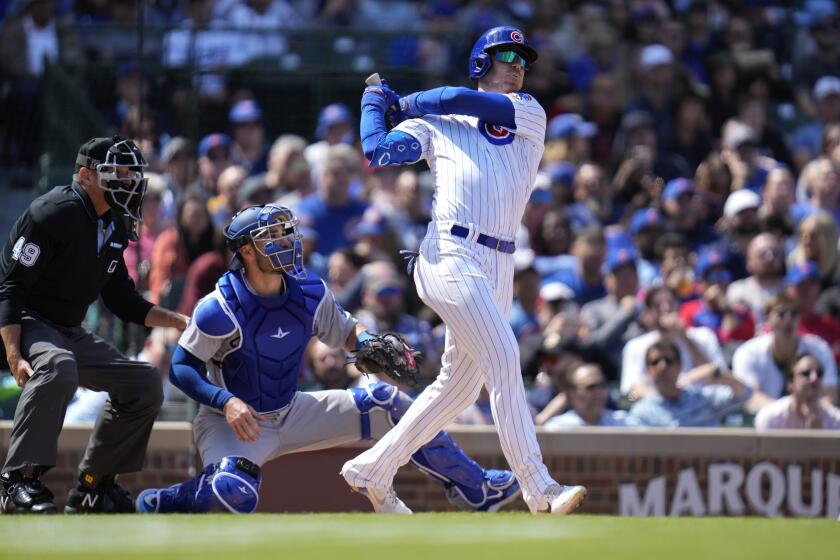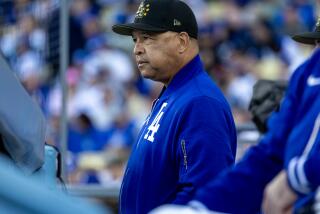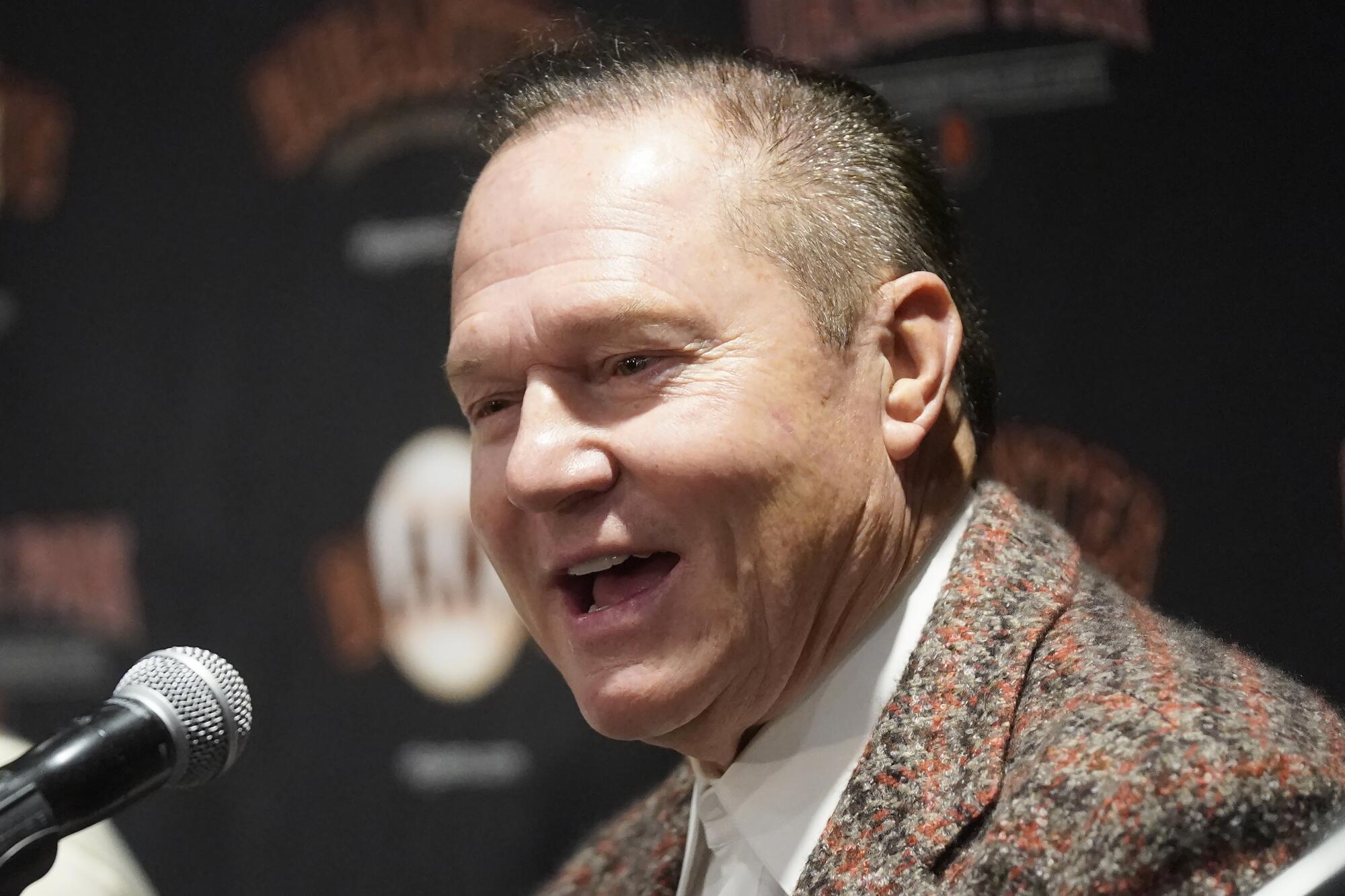
- Share via
It was scorching hot the other day at Angel Stadium. Scott Boras did not need to be there, chatting up players several hours before a game between two of the three worst teams in the American League. He did not need to be there the previous day, when he did the same thing.
And he certainly did not need to be in Modesto over the previous three days, perspiring even more, as he looked at minor league players. Boras, the most famous agent in baseball, employs about 150 people. No doubt one of them could have checked out the Nuts. (No, really, the Modesto team is called the Nuts.)
Boras is 71. The rebellious young agent who repeatedly ferreted out million-dollar loopholes in baseball’s draft system is no longer young, in an era his rivals are more likely to run on Red Bull than red wine. He could be taking a bow and winding down, not gearing up for yet another winter of staring down major league owners.
What else would he do? He tells the story of how he could not enjoy a summer vacation in Paris because, as much as he loved art and museums, he loved baseball even more, maybe too much.
“I had to leave two days early because I didn’t sleep,” he said, “because every night at 3 o’clock I was watching all the games on the iPad.”
Scott Boras said he was aware early on that Cody Bellinger and Blake Snell would have to choose between a high annual salary over the short term or a lower annual salary over the long term.
Boras is the agent fans love to hate, the face of blame for fans who believe players make too much money or exhibit too little loyalty, or both.
He steals the spotlight at the winter meetings simply by holding an extended press conference, talking baseball without divulging any major news, firing off puns and metaphors — some funny, others cringeworthy — and grabbing headlines at an event where most team executives prefer to hide in their hotel suite.
No other major agent is so readily available. He is not beloved among rival agents, but most of them do not mind that Boras willingly absorbs all the slings and arrows from the “players are greedy and agents are ruining the game” crowd.
His list of accomplishments includes: first agent to negotiate a $100-million contract (Kevin Brown, 1998); first to negotiate a $200-million contract (Alex Rodriguez, 2000); first to negotiate $1 billion worth of contracts in a winter (2019-20, and twice more since then).
Yet he is proudest of his work in the draft, even if owners have closed the loopholes Boras has exploited. In 1996, one of the loopholes Boras uncovered turned a first-round draft pick — a high school pitcher named Matt White — into a free agent.
The first pick in that draft, pitcher Kris Benson, signed for $2 million. White signed for $10.2 million, and that was 28 years ago.
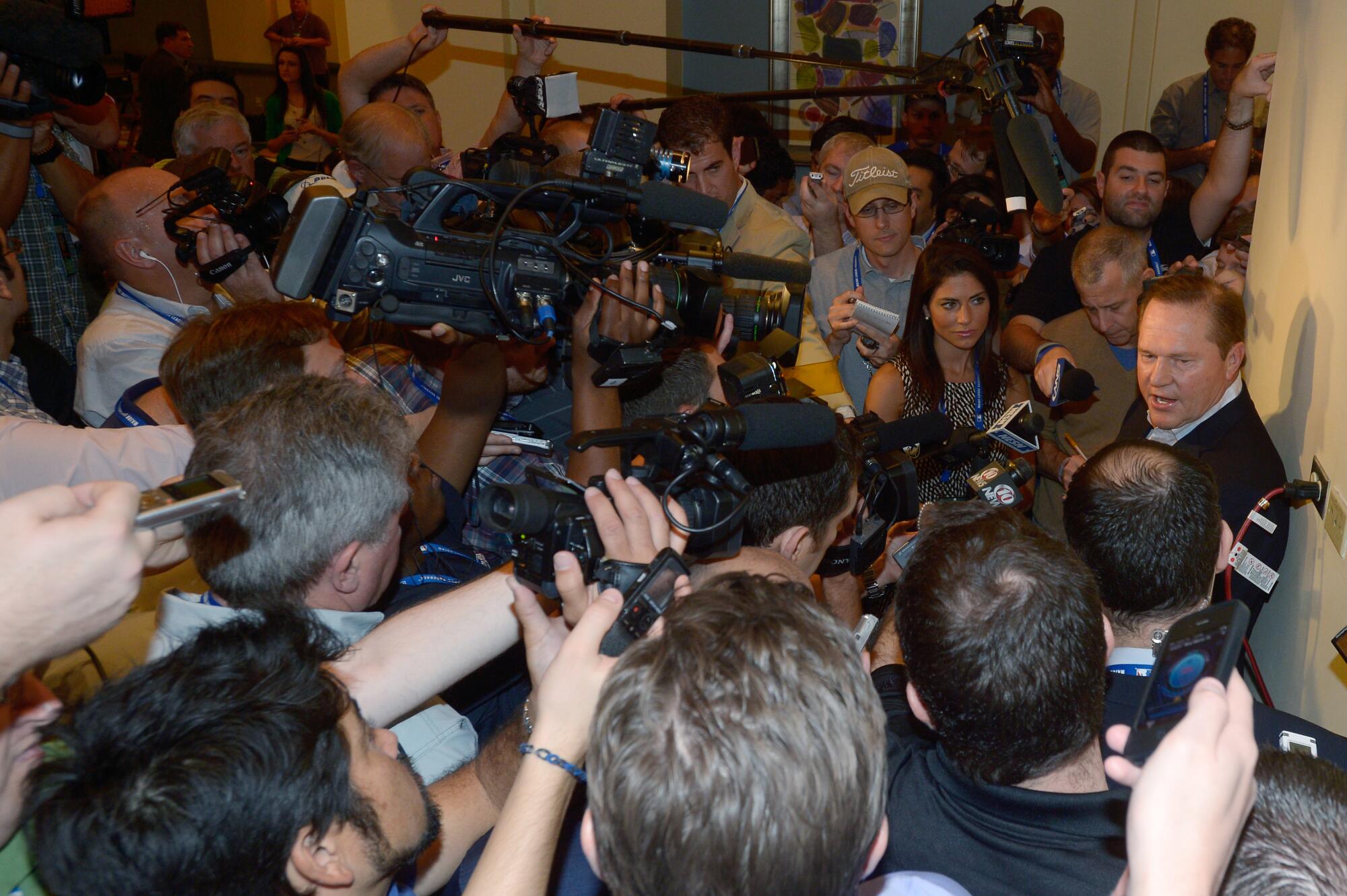
“Do you understand that, in today’s draft, no one gets $10 million?” Boras said.
The first pick in last year’s draft, Pittsburgh Pirates pitcher Paul Skenes, signed for $9.2 million. (The league-recommended bonus for the first pick in this year’s draft is $10.6 million; for the majority of the 30 teams, the league-recommended bonus total for all 20 drafted players is less than $10.6 million.)
The league and most of its owners, of course, much prefer a draft to the prospect of the Dodgers and Yankees staging bidding wars for the very best prospects. However, White signed with Tampa Bay. The lesson — at least for Boras — is that owners have successfully devalued amateur players in part by forcing them to negotiate with one team instead of all 30.
That point — and many of the points Boras makes every year — are not well received by fans. He gets it.
“Be a parent,” Boras said. “What do you want for your son?”
Huh?
“You want the best for your son,” he said. “You want him to have the best medical care. You want him to have the best information. You want him to have the best legal team behind him. This is what we provide.
“You go to the hospital, you’re going to want the best doctors. When you go into this, when you’re a parent, we expect you to think that way.”
And the point is?
“As a fan,” he said, “I want you to love your team. I want you to come to the ballpark. I want you to be that person.
“And I fully expect that, by you feeling you want the best for your team, you’re not going to particularly like that I want the best for the players that are on your team. And that dynamic should never change. It should always be there. We’re happy about it. We think it’s great.
“When you’re a parent, I fully expect you to change course. That’s all I ask.”
It is possible that, if the World Series extends to a full seven games, Boras would turn 72 on the day of Game 7.
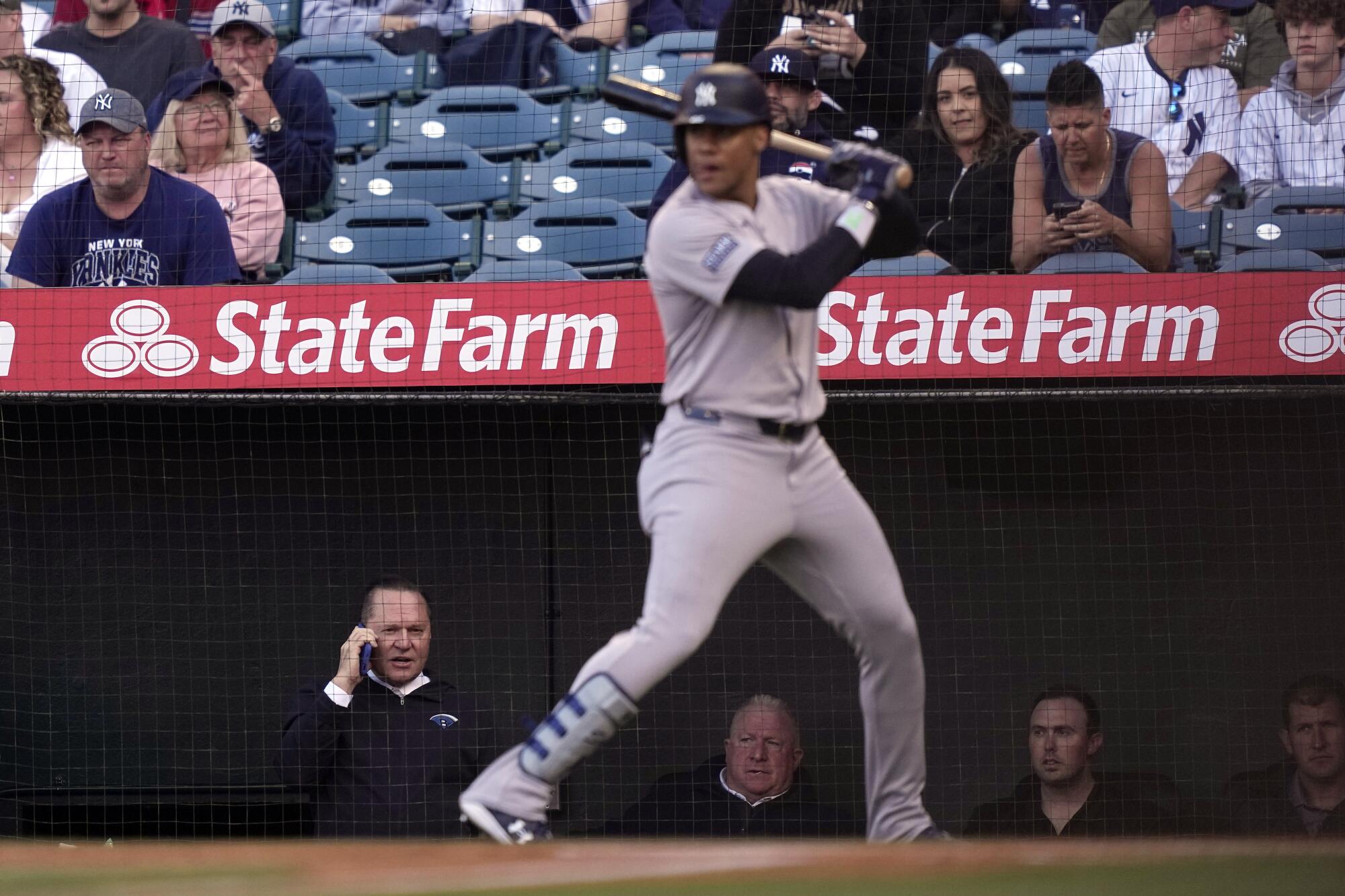
He has been a baseball agent for 41 years, never representing players in other sports, never entertaining the idea of running a team. His agency has a succession plan, involving a family trust and the retention of key executives.
He must have friends or family members who have suggested he consider retiring, or at least slowing down.
“I actually don’t,” he said. “They don’t say that to me.”
He thought back to one of his mentors, a labor lawyer who offered him congratulations, and advice, on winning his first salary arbitration case.
“He said, ‘Kid, I’m going to tell you something,’ ” Boras said, “ ‘If you’re representing your client correctly, 95% of what’s said about you will be negative. And don’t ever forget that. But, remember, your clients will love you.’
“He laid it out exactly how it is.”
Sports agent Scott Boras clarified comments made in a story by USA Today on Cody Bellinger during the 2021 and 2022 seasons with the Dodgers.
Boras told me this because the labor lawyer lived — and worked — into his 90s.
“He was writing books to the end,” Boras said.
Also working into his 90s: Ted Lerner, the founding owner of the Washington Nationals, with whom Boras negotiated deals for Bryce Harper, Stephen Strasburg, Anthony Rendon, Max Scherzer and Jayson Werth. Lerner died last year at 97.
“The thing I got from him,” Boras said, “was how to handle that 60-to-95 bracket of your life. He always told me, ‘The mind is a muscle. Keep going, keep going, keep going. Take the time physically to be in shape. Eat right. And never quit.’
“You know what? He lived a great life. Good model to follow.”
More to Read
Go beyond the scoreboard
Get the latest on L.A.'s teams in the daily Sports Report newsletter.
You may occasionally receive promotional content from the Los Angeles Times.

